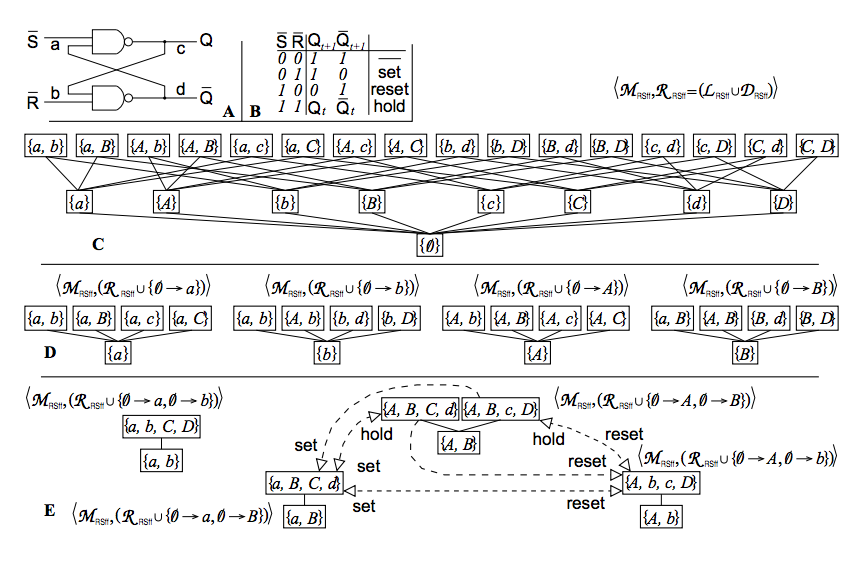
Naoki Matsumaru, Florian Centler, Pietro Speroni di Fenizio, Peter Dittrich
Chemical Organization Theory as a Theoretical Base for Chemical Computing
International Journal of Unconventional Computing, 2007, preprint (pdf)
Abstract:
In chemical computing, the result of a computation appears as an emergent global behaviour based on local reaction rules. For programming chemical systems a theoretical method to cope with that emergent behaviour is desired. In this paper, we demonstrate how the chemical organisation theory can help in designing and understanding chemical computing systems. After providing a recipe for mapping logic circuits to chemical reaction rules, we discuss reaction networks implementing various logic circuits: an XOR, a flip-flop, and a controllable oscillator. The theory decomposes reaction networks into a hierarchy of closed and self-maintaining sub-networks (called organisations) using stoichiometric information only. The dynamical behaviour of a reaction system is then explained as a movement between organisations. We show how the theoretical analysis provides insight into the potential behaviour of chemical reaction systems. The encouraging results suggest that the theory of chemical organisations contributes to a theoretical framework for chemical computing.